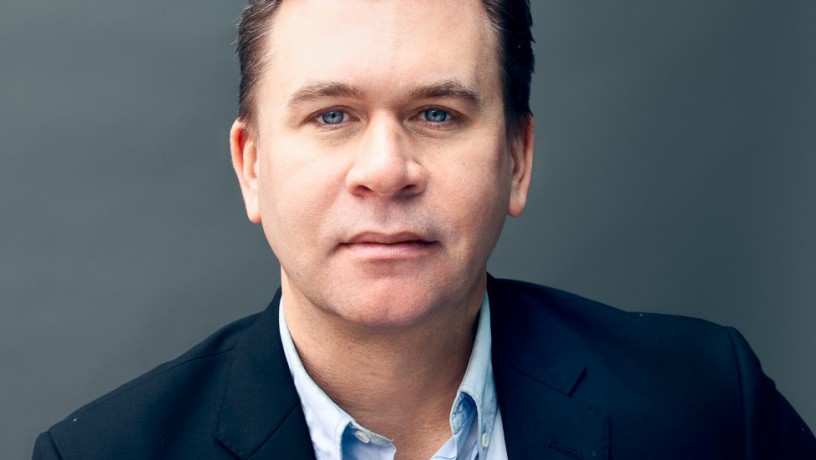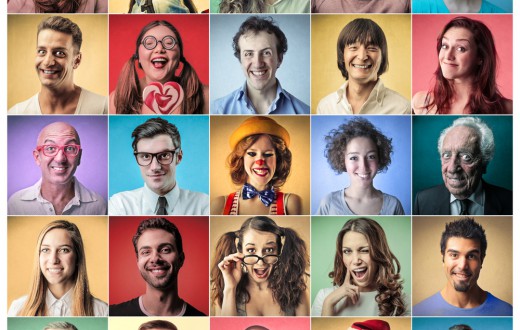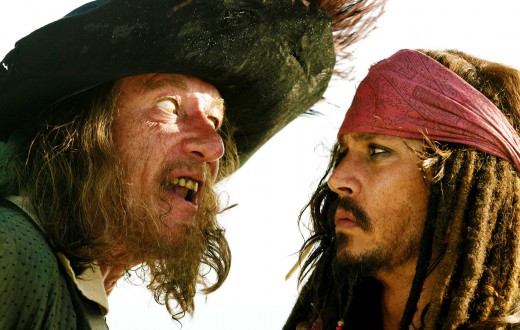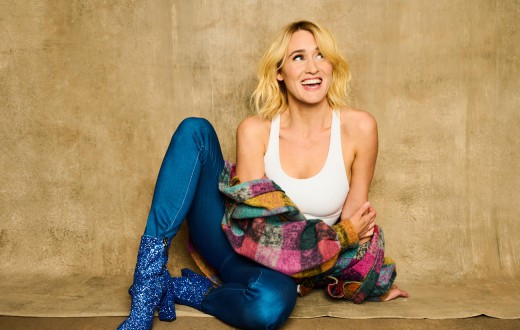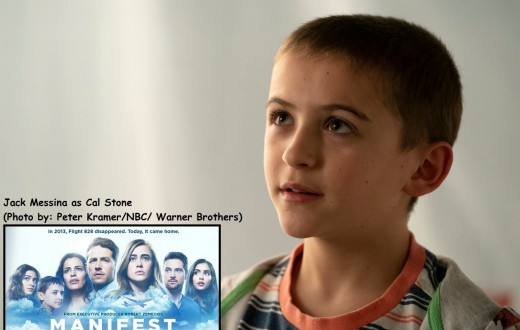Jym Benzing is an incredibly successful casting director and producer, with high-profile clients like Estée Lauder, MAC Cosmetics, Vogue and Harper’s Bazaar – to name of few (his actual bio is many more paragraphs long, check it out here: jymbenzing.com/about). He has worked with top models and celebrities. Yet he starts off our FaceTime interview by saying, “I never feel like I really made it.” A lesson in humility, one of many lessons he shares during this conversation all about the world of fashion and beauty casting.
You have been a highly successful casting director and producer for years, working with the most famous brands in beauty and fashion. Can you describe a moment (or more than one, if you’d like to share) where you realized you really made it?
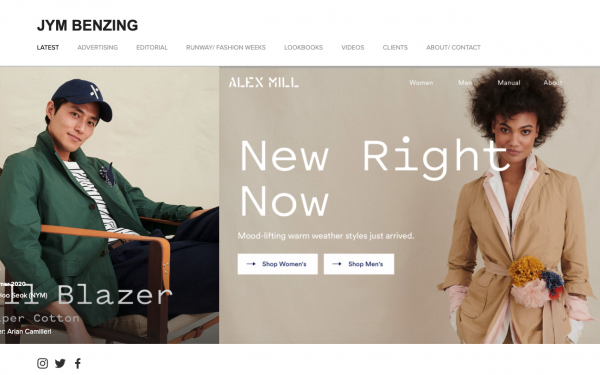 I’m going to be honest with you. I never feel like I really made it. The last 20 some years have been casting but I used to be an actor. I feel like I’m still in the same mentality as an actor where I am always looking for work, always looking for a job. Always looking for a client. So there is that daily hustle. You have to constantly have the exposure. You have to go to the events, you have to network and you have to be in front of people. So I feel like, success, I don’t know if that’s the right word. Cause every day I still have to get up and make sure I’m in front of clients, make sure I put pitches in, and there’s jobs I don’t get. So it’s hard to say successful, but I do have some career highlights that I did have to say, make sure to remember this particular moment because this is very special. I was casting director at L’Oreal for ten years and that’s a long time to work over many brands. And I’ve gotten to work with some of the top photographers, top hair people, top models in the world. I can’t say it’s a specific moment, but it’s a collection of moments of being on those sets and walking around and seeing like Guido Palau doing hair on a model. And you think, wow, I put this together. I was a part of this. In a collaborative aspect of course, you know, I’m just in the big sandbox.
I’m going to be honest with you. I never feel like I really made it. The last 20 some years have been casting but I used to be an actor. I feel like I’m still in the same mentality as an actor where I am always looking for work, always looking for a job. Always looking for a client. So there is that daily hustle. You have to constantly have the exposure. You have to go to the events, you have to network and you have to be in front of people. So I feel like, success, I don’t know if that’s the right word. Cause every day I still have to get up and make sure I’m in front of clients, make sure I put pitches in, and there’s jobs I don’t get. So it’s hard to say successful, but I do have some career highlights that I did have to say, make sure to remember this particular moment because this is very special. I was casting director at L’Oreal for ten years and that’s a long time to work over many brands. And I’ve gotten to work with some of the top photographers, top hair people, top models in the world. I can’t say it’s a specific moment, but it’s a collection of moments of being on those sets and walking around and seeing like Guido Palau doing hair on a model. And you think, wow, I put this together. I was a part of this. In a collaborative aspect of course, you know, I’m just in the big sandbox.
But you helped make that happen!
L’Oreal was a very positive experience. I loved all the people I worked with and I love what we created while we were there. Then when I went to Condé Nast, I was like, there’s no way lightning’s going to strike twice. And then I was surrounded by these amazing strong women. I mean, of course Anna Wintour led at the helm, but then Joyce Chang, who was our editor-in- chief, and Barbara Reyes, who was our creative director, and Rebecca Sinn Kelly, who was our entertainment director. I was just in awe of all these women, you know, their fierceness and their talent. I’ve been very lucky. But I feel like it’s hard for me to take stock and say, “This is the moment.” Cause I still don’t feel like I’m there.
Well, that’s very modest of you to say. So I know you’ve worked with a lot of supermodels and celebrities. Are there any memorable encounters you can share?
Yes. Working with someone like for example Ashley Graham, who is very inspirational. She is taking the platform of being a model to spread a positive message. And she started off as an e-commerce model for Old Navy when she was like fifteen, and is now one of TIME’s most influential people. We were doing a shoot and she told us, “I don’t want my stretchmarks retouched. I wear them like a badge of honor. That’s part of me. That’s part of my beauty, part of my journey, part of who I am.” I’m paraphrasing, but that was basically the gist of it. But I thought it was very cool of her, because that sends a positive message to other people, where one person thinks it is a flaw, another person looks at it as a badge of honor. Would you consider being curvy a plus or a minus? And she’s like, it’s a plus. You can see the beauty from her, and she takes the perceived flaw and makes it beautiful. I love these women who have taken something that some people would consider a negative and they turn it to a positive.
I love when someone famous takes being a role model seriously. Thank you for sharing that story. Since you are also a producer in addition to a casting director (and I’m not as familiar with that world)- what does being a producer involve?
What I’m doing is photo producing. I don’t do it all the time. When I was at L’Oreal we did it in tandem with the creative directors. The client – let’s say it’s an ad agency – I will have to present options for studios, location permits, photographers, hair, makeup – in addition to talent. So it’s more like casting for the entire thing. A lot of casting directors started doing producing because clients couldn’t afford to do it themselves and they had to outsource it. I have some brands who will ask, “Oh, can you do casting and producing?” So I will find the studio, I will handle the catering, find your hair and makeup people, I will handle the casting. That type of thing. There are a lot of casting directors that are also photo producers because you’re being hired for both.
For a model with dreams of being a supermodel- what is it about a supermodel that sets them apart and gets them booked over and over again?
The ones who are very good are the ones who are kind of like actors, they transport the viewer into what’s in their head. So the models can really make that connection, and bring you into their world. And they may have a sense of uniqueness; could be extreme beauty, it could be a bump in a nose, it could be a gap in a tooth. It could be certain freckles. But I think the main thing is having that connection with the camera. I always ask the models, what are you thinking? Like think this certain thing, but then look at the camera. The models, the better ones know how to do that, obviously. And then there’s also the sense of having experience. People think it’s an overnight thing, but they don’t realize all the lookbooks and e-commerce and runway shows that came before it. If you’re getting hired for a shoot, they’re going to expect you to know how to find your light, know how to work and express your body, feel comfortable in your own skin, to be brave, know how to work clothes. And that comes with experience. And a lot of the models learn that in e-comm, where they’re doing 80 looks a day. You don’t have time to make mistakes because you have to do 80 looks. I think that e-comm is a big stepping stone for a lot of models and a training ground. So I would say, one, connection with the camera, and two, knowing your craft. People don’t realize that modeling is a craft. They think it’s just a privileged person who won the genetics lottery standing in front of a camera, getting their picture taken, which is so far from the truth. They are representing multimillion dollar brands, and they’re carrying a lot of weight on their shoulders. And there is a lot of stress when you have hundreds of people staring at you all day saying, “Do this, do that.” That would be the two things. And the last thing I would say is having some sense of diversity and by diversity, I’m not talking about racial diversity. I’m talking about diversity in your skill. For example, when you look at a model’s book- can the model go from commercial to editorial, from e-comm to campaign to runway? Is he or she approachable? Fierce? Like, can they switch back and forth? So I would say experience, diversity and look, and then also of course being able to act and bring that to the camera. I think those are the things that set them apart.
Since you work with both actors and models, what advice can you offer actors interested in breaking into the world of modeling? And how about models looking to become actors?
Well let’s start with the latter. Because models, they already have the heads up. Cause let’s face it’s, it’s an aesthetic world. I’m not saying it’s right or wrong, but there is a benefit of being pretty and a lot of models do transfer over. I mean, Lucille Ball was a model right? And do we remember her as a model? We remember her as the queen of comedy. I think for a model going into acting, the main thing is education. You have to learn your craft, you have to go to classes. And then also you have to switch over to have your resume and theater headshot as opposed to your composite or your book. If you’re lucky enough, you’re already with an agency. A lot of model agencies work in tandem with talent agents. Like IMG is owned by William Morris. So there’s a symmetry right there. I would find out what talent agencies your modeling agencies are working with. Leading into the first thing you asked me about actors who want to be models. A lot of talent agencies have these wonderful commercial print divisions, like Buchwald, CESD, Innovative and Abrams Artists. These are actors/models who may not fit the standard height. So I would say start off with the commercial print division, if you’re an actor, and start learning what it’s like to be in front of a camera, not speaking, practicing your poses in front of a mirror.
Now some casting related questions. Nerves are I’m sure a common issue at castings, whether you’re an actor or model. Any advice on how to conquer those nerves so actors and models can be their best selves?
Nerves are definitely a part of it. And honestly it will hinder you at times because we want to see you comfortable. If you can’t be comfortable here, we’re afraid you’re not going to be comfortable on set where there’s more people and it’s more intimidating. The only thing I can say is the more you go, the easier it gets. The second thing is know that the reason you’re there is because you’re wanted. Also, know your skills, because the better you are at your skills, the more confident you become. But again, know that you’re there for a reason and go to as many castings as you can because you’ll get used to it. Nerves can sometimes work to your benefit. That’s intuition. That’s your body saying, this is important. This is your body saying, please do a good job. So you can listen. You can use your nerves as a barometer to say, “All right, this is important to me.”
What can actors/models do to make the best first impression at a casting?
Being on time. That always makes an impression.
Simple but important.
I also notice how people talk to my team. Like if they come in and they’re nasty to my assistants, but then they see me and they’re all loving.
That shows so much about the person’s character if they would do that.
I’m going to be honest with you. I like people who come in who are ready to go, prepared. It could be something simple. Like being instructed to come to the casting with no makeup, and hair in a high ponytail. A lot of times for beauty and fashion casting, we want you coming in as a blank slate. So I would say always be prepared. If you have to read, know your lines and know your script. Do research on the brands. Even I do that. If I get a new client I research the creative director, the demographic of the brand. I start looking through their Instagrams, I start looking at old ads. So you should know the brand. A sunny disposition is always good. So to sum up I would say be prepared, a good disposition, be on time, know your lines. Don’t talk too much. And do your research.
What can an actor or model do to be memorable enough that you are interested in bringing them back to more castings (even if they don’t necessarily book the job)?
I usually bring in the person that’s right for the job. But for example, and a model would not know this, but the client really liked them and they may say, “I’ll put them on the back burner for now,” or, “She might be good for hair. She might be good for lips. Let’s see her next time.” Or the model makes it to the top two, but then we ended up picking the other one. But because the client liked them, we keep them in the mix for something later on. I want to make sure that person is still being seen. So I might constantly be calling that person in. Basically, if you’re good for the job. And like I said before, know that if you’re being called in, you’re there for a reason. I won’t call you in just because I want to see you, that’s a waste of everyone’s time.
In this time of quarantine- although things have very much slowed down, I know some commercials are being shot from home now. How about the world of modeling? Have there been a lot of photoshoots from home? If yes what type of photoshoots?
Casting is very hands-on. With so many in a room you can’t really social distance. And then when you do the shoot, you have applications of hair and makeup. People are sharing products. But there are some things that are being done. There have been some shoots from home. I’m not speaking so much for myself, but I have clients that I’ve talked to that did small beauty shoots. They sent all the models cameras and lights. Now some of the e-comm shoots, there have been brands that have sent clothes to models and they’ll shoot them at home. There are people shooting off Zoom, they’re shooting into Zoom. There’s a new thing with the DSLRs where you can send a camera to a model. And you know about screen sharing, like you call tech support and they take over your computer? Well, the photographer can take over the camera from another location and control the aperture, the speed light and the clicking. So that’s another option. There are shoots that have been done where the models do their own hair and makeup. They get a car and they’re driven right from their home to the set. The photographer is ten feet away, clients watching on a close caption TV, and there’s no more than three people in the entire room. There’s been the casting of models who already live together. One brand I heard of shot a married couple who were both models, because they could get them close to each other and hugging. Also there have been a lot of photoshoots where a model is in a relationship with a photographer and they live together. So they can be in the same room and the photographer takes direction from the brand. I think that’s going to be a new thing, who you’re quarantined with.
Whether you’re a model or an actor this is a job that involves rejection. What advice can you offer on how to deal with this aspect of the job and not get discouraged?
I would say don’t take anything too personally. First of all, we’re not saving lives. I know it’s your livelihood and it’s your money, it’s your craft and it’s your art. But you know, we’re not doctors, we’re not brain surgeons.
That puts it in perspective.
We make pretty pictures, movies, entertainment. Fun stuff, right? You probably won’t know why you didn’t get the job. But don’t take it personally. There’s so many factors in why someone doesn’t get cast. And nine out of ten times it has nothing to do with the talent. And like I said before, know that you’re there for a reason. You have a seat at the table, you deserve a seat at the table. If you’re called, you deserve to be there. Rejection is part of the game. As we know, as an actor or as a model, if you don’t have a thick skin to handle rejection, then you’re probably in the wrong business. And so I would say don’t take anything personal and know that rejection’s going to be part of the game. You have to let it roll off you and move on, and go to the next casting.
—
And so our conversation came to a close. Incredibly giving of his time, we spoke for over an hour, and as a model and actress you could say I was just taking it all in. Successful, humble…and generous? Grateful to have had this seat at Mr. Benzing’s table.
Find More Casting Directors & Agencies in our Agents Directory

